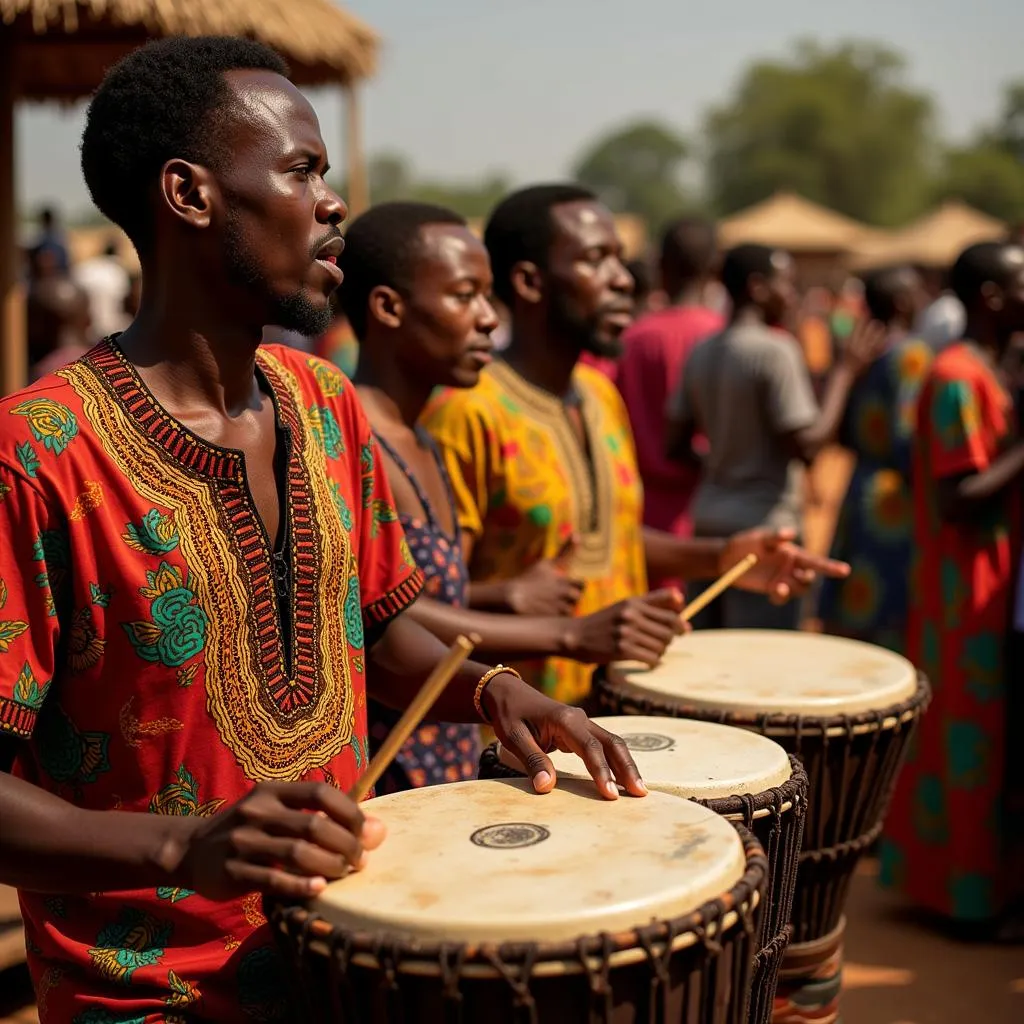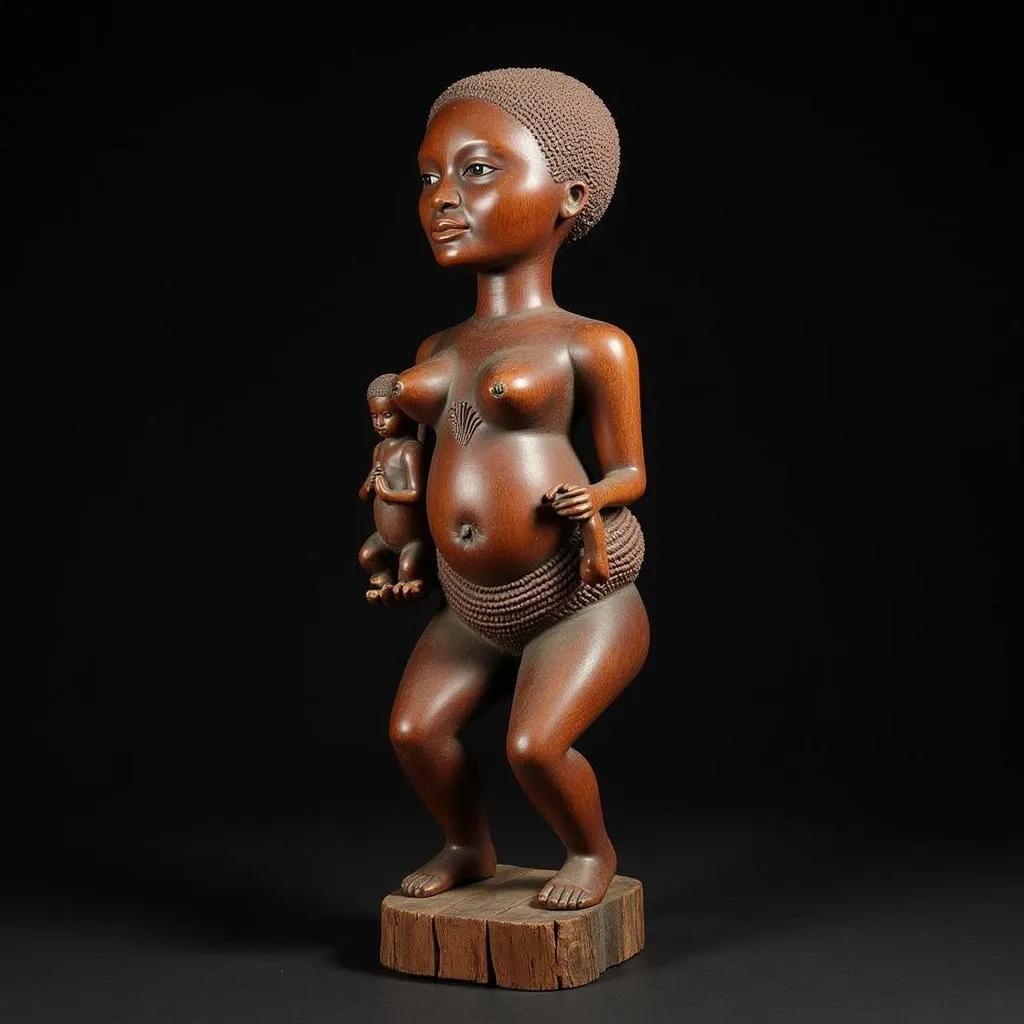African Embroidery: Exploring the Vibrant World of Kente and Meba
African embroidery is a rich and diverse art form, with each region boasting unique techniques, materials, and symbolism. Among the most celebrated styles are Kente cloth from Ghana and Meba embroidery from Cameroon. These exquisite textiles are not merely garments but cultural emblems, woven with history, beliefs, and artistic expression.
Kente Cloth: A Royal Tapestry of Ghana
Originating from the Ashanti people of Ghana, Kente cloth is more than just fabric; it’s a visual language. Handwoven on narrow strip looms, Kente is characterized by its intricate geometric patterns, vibrant colors, and rich symbolism. Each design, known as a “motif,” holds a specific meaning, often relating to proverbs, historical events, or social status.
Symbolism and Significance of Kente Motifs
The colors in Kente cloth hold deep significance. Gold represents royalty and wealth, while blue symbolizes peace and harmony. Green signifies growth and prosperity, red embodies courage and strength, and black signifies spiritual maturity and ancestral connection.
Kente in Contemporary Fashion and Art
Today, Kente cloth has transcended its traditional boundaries and become a global symbol of African heritage. It’s incorporated into contemporary fashion, art, and interior design, making a bold statement about cultural pride and artistic expression.
Meba Embroidery: A Celebration of Cameroonian Heritage
Meba embroidery, hailing from the Bamileke people of Cameroon, is a stunning example of the artistry found in African textiles. Known for its raised, three-dimensional designs, Meba embroidery uses appliqué techniques to create intricate patterns on a base fabric.
The Art of Meba: Techniques and Materials
Meba embroidery is a labor-intensive process, involving skilled artisans who meticulously cut and sew fabric pieces onto the base cloth. The raised effect is achieved by layering and padding the appliqué, creating a textured and visually striking design. Traditional Meba embroidery often incorporates beads, cowrie shells, and other embellishments.
Meba: A Symbol of Status and Identity
Meba embroidery is not merely decorative; it serves as a powerful symbol of social status and identity within Bamileke culture. The elaborate designs and the time invested in creating them reflect the wearer’s wealth, prestige, and social standing.
Kente and Meba: Threads of Cultural Heritage
Both Kente and Meba embroidery are testament to the rich textile traditions of Africa. They showcase the skill, creativity, and cultural depth of their respective communities, serving as tangible expressions of history, beliefs, and artistic excellence. These vibrant textiles continue to inspire artists and designers worldwide, ensuring the legacy of African embroidery lives on.
Conclusion
African embroidery, exemplified by Kente and Meba, offers a captivating glimpse into the continent’s vibrant culture and artistic heritage. These textiles are not merely garments but intricate tapestries woven with history, symbolism, and artistic expression. By exploring the world of Kente and Meba, we gain a deeper appreciation for the beauty, craftsmanship, and cultural significance of African embroidery.
FAQ
-
What is the difference between Kente and Meba embroidery?
- Kente is a handwoven cloth with intricate geometric patterns, while Meba uses appliqué techniques to create raised, three-dimensional designs.
-
What is the cultural significance of Kente cloth?
- Kente cloth is a symbol of royalty, wealth, and cultural heritage in Ghana, with each motif holding specific meanings.
-
What materials are used in Meba embroidery?
- Meba embroidery typically uses fabric appliqué, beads, cowrie shells, and other embellishments.
-
Where can I find authentic Kente and Meba textiles?
- Authentic Kente and Meba textiles can be found in specialty stores, online marketplaces, and by visiting Ghana and Cameroon.
-
How can I incorporate Kente and Meba into my wardrobe?
- You can add Kente and Meba to your wardrobe through accessories, scarves, clothing items, or home décor pieces.
Need more information about Kente and Meba? Explore other articles on our website about African embroidery techniques, the history of African textiles, and the cultural significance of different designs.
For any inquiries or assistance, please contact us:
Phone: +255768904061
Email: kaka.mag@gmail.com
Address: Mbarali DC Mawindi, Kangaga, Tanzania
We have a dedicated customer support team available 24/7 to assist you.




